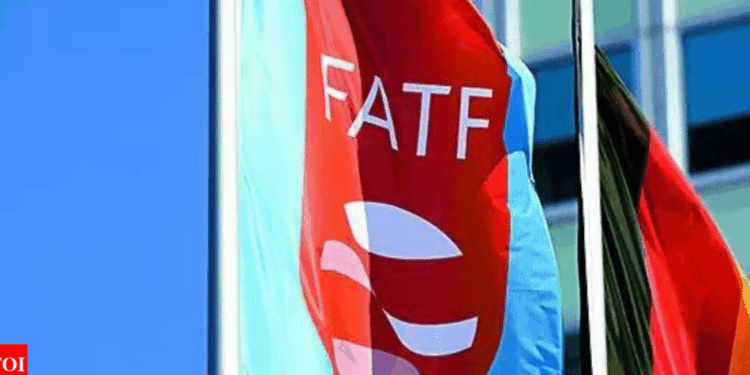Four African countries have been removed from the Financial Action Task Force’s (FATF) ‘grey list’ after implementing significant reforms to tackle money laundering and terrorist financing. Burkina Faso, Mozambique, Nigeria and South Africa were delisted for what FATF described as ‘positive progress’ in closing strategic deficiencies previously highlighted. The decision means all four jurisdictions are no longer subject to increased monitoring.
The announcement was made in Paris at the end of the fourth FATF Plenary Meeting, presided over by Elisa de Anda Madrazo of Mexico. The three-day session gathered delegates representing more than two hundred jurisdictions to strengthen global actions against illicit financial flows. The development was welcomed by observers as a rare collective success story for the continent, reported in official FATF communications.
‘Positive story for the continent’
‘This plenary has been a positive story for the continent of Africa,’ said de Anda Madrazo. ‘A record four countries have been removed from the grey list: Burkina Faso, Mozambique, Nigeria and South Africa. These countries have worked hard to close loopholes that criminals seek to exploit and clean up their economies.’
FATF action plans require countries under review to enhance legal frameworks, improve regulatory oversight, and demonstrate effective law enforcement outcomes. According to the FATF, all four governments fulfilled their action plans within agreed timelines and passed on-site evaluations confirming compliance.
National reforms demonstrate progress
South Africa intensified coordination between regulators and law enforcement agencies to improve detection of suspicious transactions. Nigeria reinforced its financial intelligence capabilities and boosted inter-agency cooperation, while Mozambique enhanced intelligence sharing and strengthened its national Financial Intelligence Unit. Burkina Faso increased oversight of financial institutions and ‘gatekeeper’ professions such as accountants, auditors and lawyers.
De Anda Madrazo noted that these achievements stemmed from sustained effort across multiple authorities, supported by FATF-Style Regional Bodies ESAAMLG and GIABA under the Africa Joint Group.
Cooperation continues post-delisting
Although delisted, Burkina Faso and Nigeria will continue cooperation with GIABA to maintain momentum; Mozambique will deepen engagement with ESAAMLG; and South Africa, a full FATF member, will continue working directly with the FATF in coordination with regional partners.
Beyond the delisting decisions, the plenary also approved new global guidance on asset recovery, due for publication next month. The guidance aims to strengthen legal frameworks and provide investigators with practical tools to trace and reclaim illicit assets across borders.
Technology-driven threats also in focus
Delegates also endorsed a new Horizon Scan, warning governments and private-sector actors of emerging risks from artificial intelligence and deepfake technologies. The document will advise on mitigating evolving illicit finance threats linked to rapid technological change.
Regional collaboration yields results
De Anda Madrazo highlighted a recent Interpol–Afripol operation that led to eighty-three arrests and the seizure of more than six hundred thousand dollars linked to money laundering and terrorist financing across several African states.
As the plenary closed, she reaffirmed FATF’s commitment to ‘depriving criminals of their ill-gotten gains’ and praised the African delistings as an example of political will and effective regional cooperation.
‘These transformations will help better protect communities harmed by crime and corruption,’ she said. ‘This progress means greater safety and resilience for millions.’
With the four African nations now successfully delisted, the FATF’s latest plenary marks a significant step forward in strengthening global financial integrity and promoting economic confidence across the continent.
















